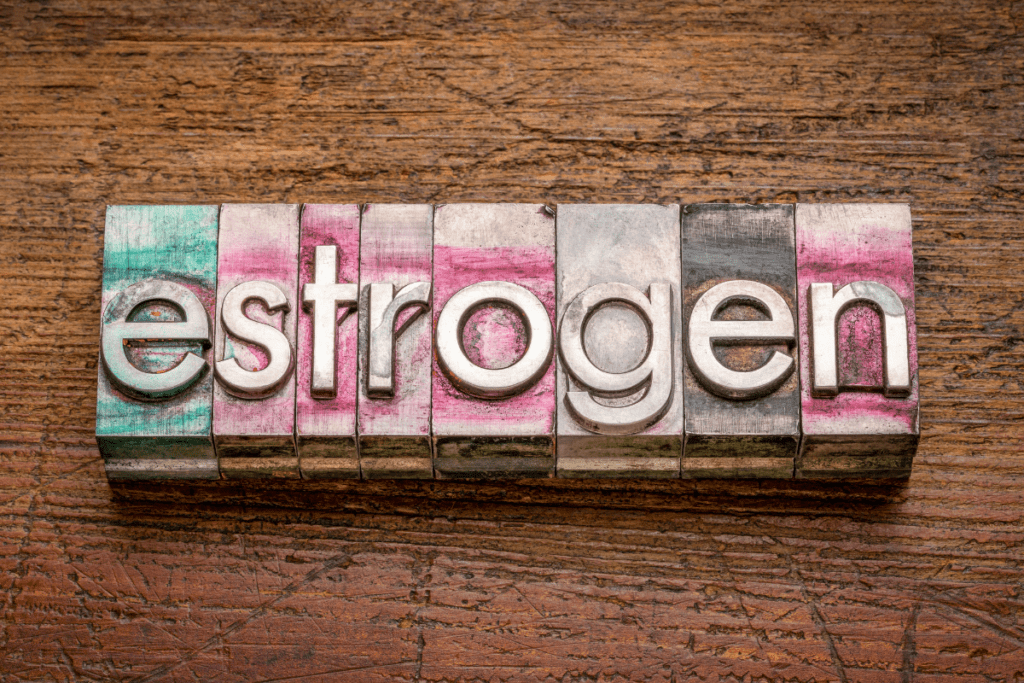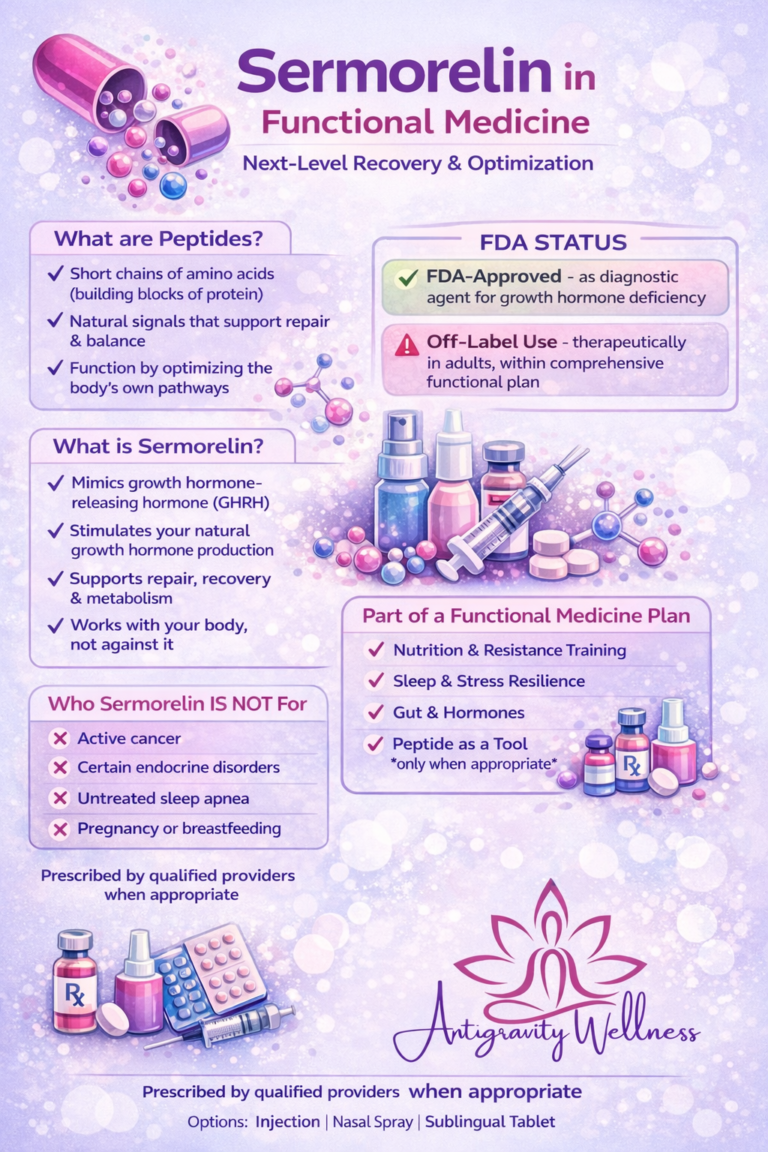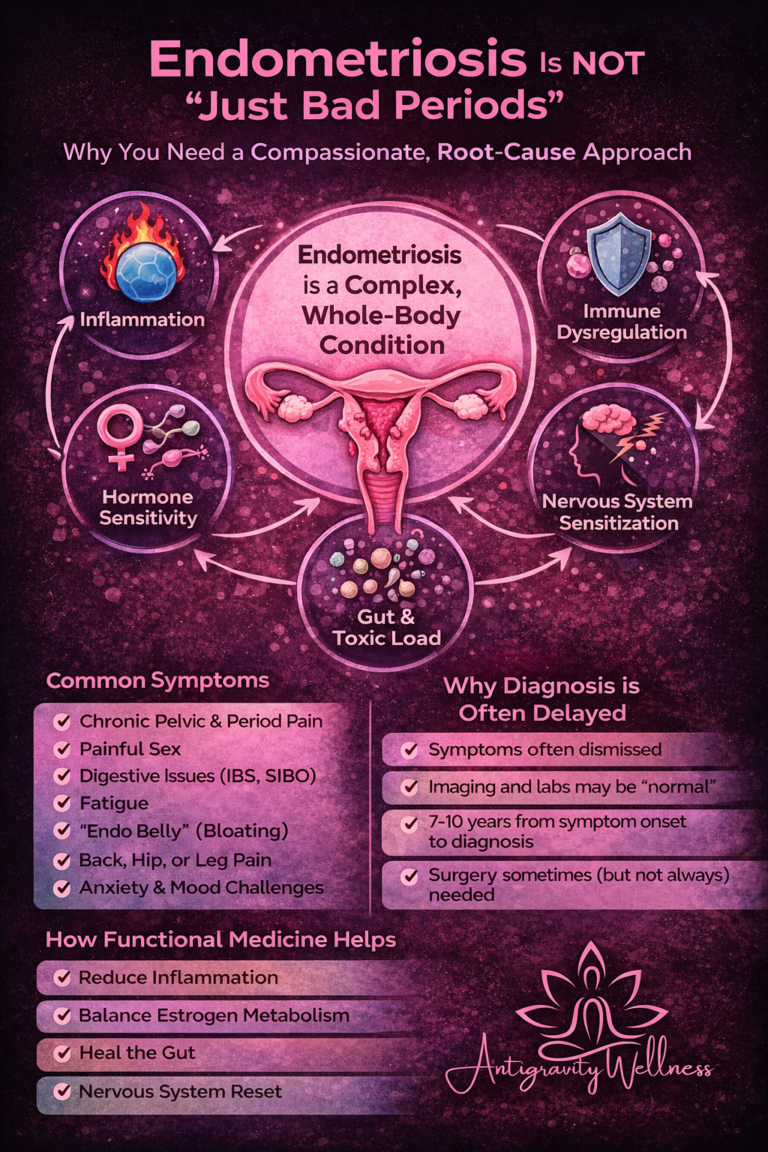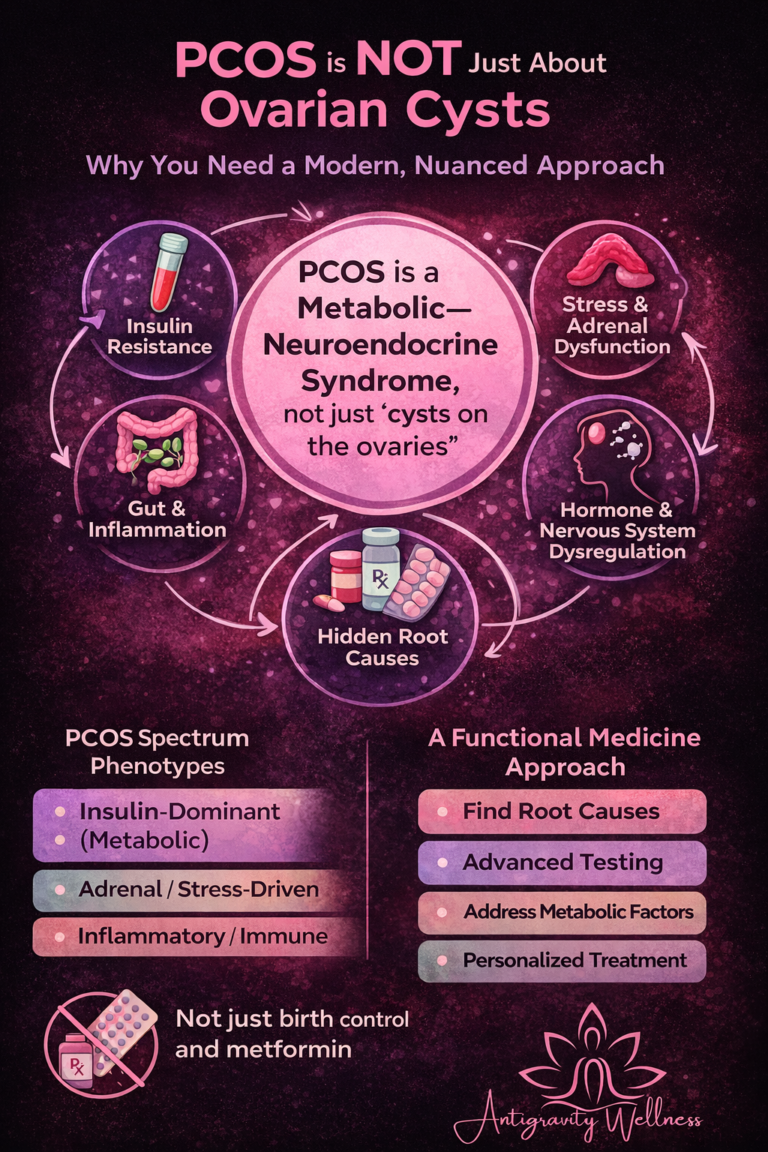
Estrogen is one of the most important hormones for women’s health, influencing everything from reproductive function to mood, energy, and bone density. Maintaining a healthy estrogen balance is crucial, especially during the perimenopausal and menopausal transitions when fluctuations can cause a range of symptoms. This article explores the roles of estrogen, signs of imbalance, and natural ways to support healthy estrogen levels.
—
What is Estrogen?
Estrogen is a group of hormones responsible for the development and regulation of the female reproductive system and secondary sex characteristics. The three main types of estrogen are:
1. Estradiol (E2): The most potent form, primarily produced by the ovaries in reproductive years.
2. Estrone (E1): The dominant estrogen post-menopause, produced in fat tissue.
3. Estriol (E3): The weakest form, primarily present during pregnancy.
Estrogen doesn’t just impact reproductive health. It also plays critical roles in:
Brain Function: Supports mood and cognitive health.
Bone Health: Helps maintain bone density.
Heart Health: Regulates cholesterol and vascular function.
—
Signs and Symptoms of Low Estrogen
Low estrogen levels can occur during perimenopause, menopause, or as a result of other health conditions. Common symptoms include:
Physical Symptoms:
Hot flashes
Night sweats
Vaginal dryness or atrophy
Dry skin and brittle nails
Joint pain or stiffness
Emotional and Cognitive Symptoms:
Mood swings, anxiety, or depression
Difficulty concentrating or “brain fog”
Fatigue
Long-Term Risks:
Osteoporosis
Increased cardiovascular risk
—
Signs and Symptoms of High Estrogen
High estrogen, often referred to as estrogen dominance, occurs when estrogen levels are high relative to progesterone. Symptoms include:
Physical Symptoms:
Bloating
Breast tenderness or swelling
Weight gain, especially around the hips and thighs
Irregular or heavy periods
Emotional Symptoms:
Irritability
Anxiety
Other Concerns:
Fibroids
Endometriosis
Increased risk of certain cancers
—
How to Naturally Balance Estrogen
Balancing estrogen is not only about lowering or raising levels—it’s about maintaining the right ratio between estrogen, progesterone, and other hormones. Here are natural strategies for estrogen balance:
1. Diet
Increase Fiber Intake: Fiber helps the body eliminate excess estrogen. Include foods like whole grains, vegetables, and fruits.
Cruciferous Vegetables: Broccoli, kale, and Brussels sprouts contain compounds like DIM (diindolylmethane) that support estrogen metabolism.
Healthy Fats: Avocados, nuts, and seeds support hormone production.
Phytoestrogens: Foods like flaxseeds, soy, and chickpeas can help balance estrogen by mimicking its effects in the body.
2. Exercise
Strength Training: Helps lower body fat, a source of excess estrogen post-menopause.
Aerobic Exercise: Supports overall hormone balance and improves insulin sensitivity.
3. Lifestyle
Stress Management: Chronic stress increases cortisol, which can disrupt estrogen balance. Incorporate practices like yoga, meditation, or journaling.
Sleep Hygiene: Prioritize 7–8 hours of quality sleep to support hormone regulation.
Limit Alcohol: Excessive alcohol can impair the liver’s ability to metabolize estrogen.
4. Herbal Supplements
Certain herbs can support estrogen balance, but they should be used under professional guidance:
Chasteberry (Vitex): May help lower high estrogen and support progesterone production.
Black Cohosh: Supports estrogen receptor activity and may alleviate symptoms like hot flashes.
Red Clover: Contains phytoestrogens that can mimic estrogen.
DIM Supplements: Helps metabolize estrogen and reduce estrogen dominance.
Note: Always consult with a healthcare provider before starting herbal supplements, as they may interact with medications or exacerbate underlying conditions.
—
Estrogen Imbalance Support at Antigravity Wellness
At Antigravity Wellness, we specialize in helping women navigate estrogen imbalances during perimenopause and menopause. Through functional labs, lifestyle recommendations, and herbal guidance, we provide personalized care to support your health and well-being.
If you’re experiencing symptoms of estrogen imbalance, schedule a brief initial consult today. Our telemedicine practice serves women in Washington and Oregon, offering comprehensive assessments and tailored treatment plans to help you achieve optimal hormone health.




